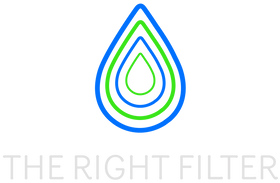Let's talk about turning water woes into wins, because science just cracked some serious problems with America's drinking water.
First up: those "forever chemicals" called PFAS that haunt our water supplies. A global team of chemists just invented a way to replace them in waterproof coatings without losing performance. They discovered that fluorine's magic "bulkiness" - what makes it so good at repelling water - can actually be copied using harmless carbon and hydrogen instead. That means we might soon have raincoats and food packaging that work just as well but won't poison us.
Meanwhile in Australia, researchers built molecular nanocages that trap 90% of PFAS from groundwater. These tiny organic cages are like microscopic bouncers - they only let the bad stuff in and keep the good water flowing. They work better than old-school carbon filters and cost way less than fancy reverse osmosis systems.
But here's the real game-changer: Monash University created a super-filter with nanoscale channels so precise they catch even the smallest PFAS molecules that slip through regular filters. It's like having a sieve where the holes are exactly the right size to catch contaminants but let clean water through.
For the PFAS we've already pulled out of water, Clarkson University came up with a slick trick. Instead of burning contaminated filters (which can release toxins), they found a way to break down PFAS at room temperature. No flames, no solvents - just chemistry doing its thing.
Now let's talk about America's water crisis. Two million people don't have running water at all, while 30 million more drink from systems that violate safety rules. The worst spots? West Virginia, Mississippi, and Texas have counties where water problems stack up like dirty dishes.
Here's the kicker: private water companies aren't fixing this faster than public ones. In fact, places with more privatized water see more people worrying about whether their water's safe. It turns out clean water isn't about who owns the pipes - it's about having the right tools and the will to use them.
The good news? Science is handing us those tools. From PFAS-destroying filters to safer chemical alternatives, we're building a toolkit to fix our water. The nanocages and nano-filters could help small towns clean their water without breaking the bank. The new coatings could stop more PFAS from getting into water in the first place.
Next time you pour a glass of water, remember: science is working to make sure everyone can do the same without worrying what's in it.
